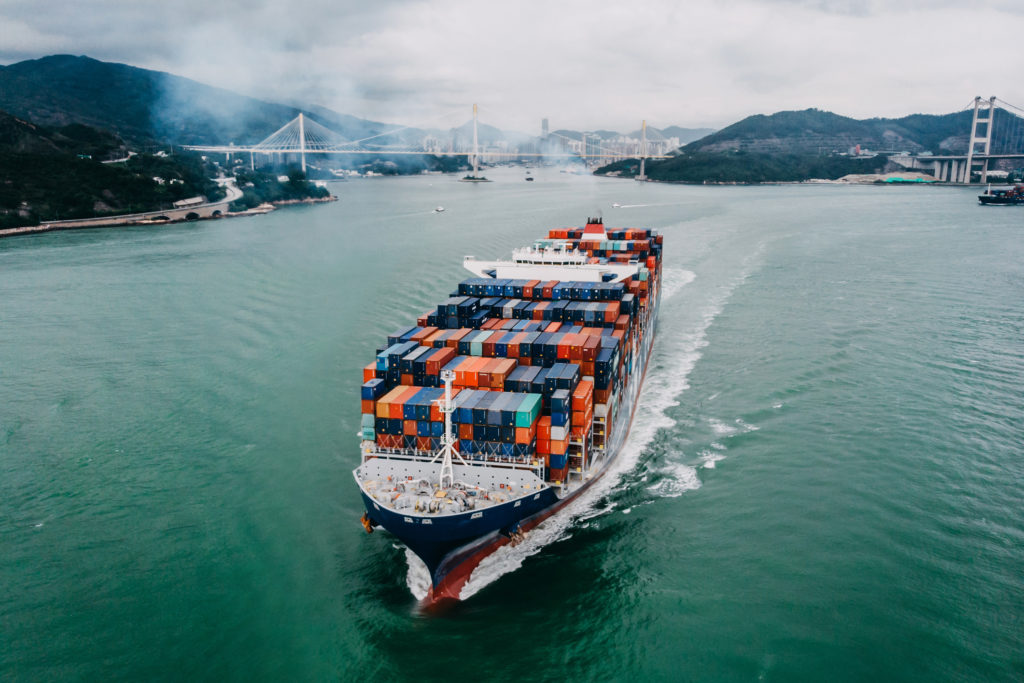
Becky Rasdall joined the International Dairy Foods Association in July 2020 as Vice President, Trade Policy and International Affairs where she is responsible for developing and advocating industry positions on issues impacting the international trade in dairy products. Before she joined IDFA, Becky spent nearly a decade serving in a variety of roles with the U.S. Department of Agriculture and the Office of the U.S. Trade Representative, where she focused on dairy trade and worked on negotiations with Europe, China, Mexico, Canada, and India. Prior to joining the U.S. government, Becky worked for a food company and a Member of Congress.
We recently sat down with Becky to ask her how she plans to advance the trade agenda to support the interests of IDFA members in the global marketplace.
Q: As you come into this position with IDFA, what are your top priorities to help elevate dairy in trade?
A: I’d really like to change the way we think about, talk about, and act on complex dairy trade policy matters. I am an optimist about our prospects and I’d like that optimism to rub off on others so we work together to be more proactive and to use what we’ve learned from the past. No idea is a bad idea. To that end, I’ll be as innovative and creative as possible when it comes to tackling complex policy matters. I hope our members recognize that in IDFA’s recent engagement on the U.S.-Kenya trade negotiations. On the one hand, we encourage the Administration to pursue a trade agreement with the African continent’s seventh largest economy, but we must be clear-eyed about Kenya’s protectionist measures over its dairy sector and non-tariff barriers to trade. We need to think big about how we expand and diversify U.S. dairy opportunities and encourage new preferential trade agreements. At the end of the day, equitable and transparent agreements with rules that provide certainty, open markets and eliminate barriers for U.S. dairy is what we’re seeking.
As U.S. milk production continues to increase over the next decade, trade will become even more vital to the industry and the American economy. IDFA must be aggressive and ambitious about ensuring dairy has an equal share at the negotiating table, as our members continue to expand their international business opportunities.
Becky Rasdall, Vice President, Trade Policy and International Affairs, IDFA
Q: You said something recently that stuck with me. You said that it’s important for IDFA and dairy to be aggressive on trade and trade negotiations. What do you mean by ‘aggressive’ and why is it important?
A: We tend to think of words like “aggressive” and “ambitious” as having negative connotations, and in my time negotiating commitments on behalf of U.S. dairy with the government, I was called those things. I take them as compliments, though, and affirmation that I was doing my job. With U.S. milk production outpacing domestic consumption of dairy products, I see trade as the future of our industry. As U.S. milk production continues to increase over the next decade, trade will become even more vital to the industry and the American economy. IDFA must be aggressive and ambitious about ensuring dairy has an equal share at the negotiating table, as our members continue to expand their international business opportunities. If we as a dairy industry don’t advocate for ourselves, who will? And if not now, then when? Being aggressive is a good thing for dairy trade—it’s a necessity.
Q: What are some of the major challenges that we need to address in food and agriculture exports and, specifically, dairy exports?
A: Specific to U.S. challenges, the U.S. dairy industry has historically focused on the domestic U.S. customer while many other agricultural commodities have been engaged in international trade for many years. Dairy exports didn’t really take off until 2005 or so. That experience has resulted in the creation of robust and nimble U.S. government support programs for those other commodities, such as export certification and verification programs, while dairy is still developing this supportive infrastructure. Thinking about overseas challenges, the past couple years have seen a spate of protectionist and nationalist measures taken by foreign governments. They may not always evolve to fruition, but we’ve seen foreign legislators and regulators propose things like taxes on dairy imports, extra testing on dairy imports, and restrictions on shelf life for imports. Countries are getting more and more creative with their measures to protect their domestic dairy industries, so we need to get more creative about how we protect our exports – which reached $5.9 billion in 2019.
Q: What excites you about the future of dairy in the global marketplace? A: I was passionate about international dairy policy and leveling the playing field for the dairy industry during my tenure with the U.S. government and I bring that same passion with me to IDFA. Reading press articles about farms closing and milk getting dumped is disheartening, and I became known for showing up to government dairy trade strategy sessions with new, innovative, or high-quality dairy products to bring greater focus to those discussions. In my new role, I bring that same energy. We are seeing first-hand an evolution of the U.S. dairy industry and a major shift in what agriculture looks like in the United States. Trade is critical to that evolution, and it is clear to me that trade is critical to preserving the future of U.S. dairy. That is why I am so excited to dive in and support this great industry!
IDFA Subject Matter Expert

Becky Rasdall Vargas
Senior Vice President, Trade and Workforce Policy

